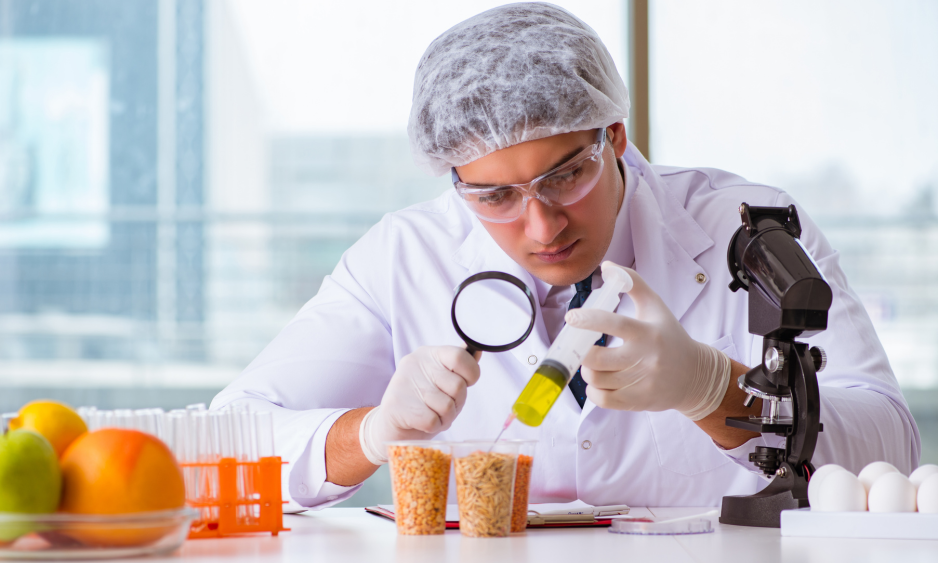
Why Food Quality Testing Is Crucial for Chennai’s Food Industry
Chennai’s food industry has grown significantly over the past decade. With a mix of traditional eateries, modern restaurants, packaged food brands, and cloud kitchens, the city’s food ecosystem is both diverse and competitive. But with growth comes responsibility — particularly when it comes to food safety and quality.
As consumer awareness increases and regulatory bodies become stricter, food quality testing in Chennai is no longer optional. It's essential for protecting consumer health, staying compliant with regulations like FSSAI, and maintaining your brand reputation in a competitive market.
What Is Food Quality Testing?
Food quality testing involves scientifically analyzing food items to ensure they meet defined safety, nutritional, and regulatory standards. These tests evaluate a range of parameters including:
Microbial contamination (e.g., bacteria, fungi, and viruses)
Chemical contamination (e.g., pesticides, heavy metals, additives)
Adulterants (e.g., non-permitted colors, harmful fillers)
Nutritional content (e.g., proteins, fats, carbohydrates, vitamins)
Shelf life and packaging integrity
Food testing ensures the food being sold or served is safe to consume, accurately labeled, and compliant with Indian food laws, especially those governed by the Food Safety and Standards Authority of India (FSSAI).
Why Is Food Testing Important for Chennai?
1. Hot and Humid Climate
Chennai’s climate accelerates the spoilage of perishable foods. Warm temperatures and high humidity create ideal conditions for microbial growth. This makes microbial food testing in Chennai extremely important, especially for dairy, seafood, and meat products.
2. FSSAI Compliance and Legal Requirements
All food businesses in India — including restaurants, cloud kitchens, caterers, and packaged food producers — are legally required to comply with FSSAI standards. These regulations require regular food sample testing, particularly for:
• Microbial safety
• Nutritional claims
• Use of additives and preservatives
• Shelf-life validation
Without proper testing and documentation, food businesses can face legal penalties, fines, or even license suspension.
3. Consumer Awareness and Trust
Today’s consumers are well-informed and expect transparency from food brands. They want to know what’s in their food, whether it’s safe, and whether the nutritional claims are accurate. Regular food quality testing demonstrates your commitment to safety and transparency, helping you build long-term consumer trust.
4. Rising Cases of Adulteration
Food adulteration is still a major concern in Chennai. Common examples include:
• Detergents in milk
• Synthetic colors in sweets
• Pesticide residues in fruits and vegetables
• Chalk powder in flour or turmeric
Food adulteration testing in Chennai can detect such harmful practices and ensure that the food reaching your customers is pure and safe.
What Types of Tests Are Performed?
At a certified food testing laboratory in Chennai like FITPL, the following types of tests are commonly carried out:
Microbiological Testing
Checks for harmful bacteria and fungi like:
• E. coli
• Salmonella
• Listeria
• Yeast and mold counts
This testing is crucial for ready-to-eat meals, seafood, dairy, and bakery products.
Chemical Analysis
Ensures that food does not contain harmful chemicals, such as:
• Heavy metals (lead, arsenic, cadmium)
• Preservatives (benzoic acid, sorbic acid)
• Pesticide residues
• Artificial sweeteners and dyes
Ideal for fruits, vegetables, spices, oils, and beverages.
Nutritional Label Verification
Confirms the accuracy of nutritional information listed on packaging, including:
• Protein, fat, and carbohydrate content
• Vitamins and minerals
• Total caloric value
Necessary for FSSAI compliance and consumer transparency.
Adulteration Testing
Detects the presence of harmful or non-permitted adulterants like:
• Synthetic colorants
• Urea in milk
• Stone powder in spices
This is essential for traditional Indian food products and bulk commodity vendors.
Shelf-Life Testing
Determines how long a product remains safe and retains its quality. Important for:
• Packaged food manufacturers
• Exporters of perishable products
• Frozen or refrigerated food brands
Who Needs Food Testing in Chennai?
Every business involved in the preparation, processing, packaging, storage, or sale of food must undergo periodic food testing. These include:
• Restaurants and cafes
• Hotels and caterers
• Cloud kitchens and delivery platforms
• FMCG and packaged food manufacturers
• Dairy, bakery, and seafood producers
• Spice and snack exporters
• Street food vendors (licensed under FSSAI)
• Home-based businesses that sell food online or offline
Why Choose FITPL for Food Quality Testing in Chennai?
FITPL (Falcon Industrial Testing Laboratory Pvt. Ltd.) is a trusted NABL-accredited food lab in Chennai offering a complete range of food testing services. Here's why businesses prefer us:
✔ NABL Accreditation
We’re accredited under ISO/IEC 17025, which ensures our test results are recognized by regulatory bodies across India.
✔ Comprehensive Testing Solutions
We provide microbiological, chemical, nutritional, adulteration, and shelf-life testing under one roof.
✔ Advanced Infrastructure
Our lab is equipped with high-end instruments like:
• Gas Chromatography–Mass Spectrometry (GC-MS)
• High-Performance Liquid Chromatography (HPLC)
• Atomic Absorption Spectroscopy (AAS)
• Microbial incubators and laminar flow cabinets
✔ Quick Turnaround and Competitive Pricing
We understand time-sensitive production needs. Our standard TAT is 3–5 days with affordable packages for startups, MSMEs, and large enterprises.
✔ Compliance Support
We help food businesses with FSSAI documentation, test reports for audits, and nutritional label validation.
The food industry in Chennai is thriving, but with opportunity comes responsibility. Whether you're a street food vendor or a multi-location packaged food brand, food quality testing is not just about compliance — it's about building trust, protecting public health, and future-proofing your business.
With FITPL by your side, you can rest assured that your food products are tested to the highest standards, backed by science and certified by NABL.

